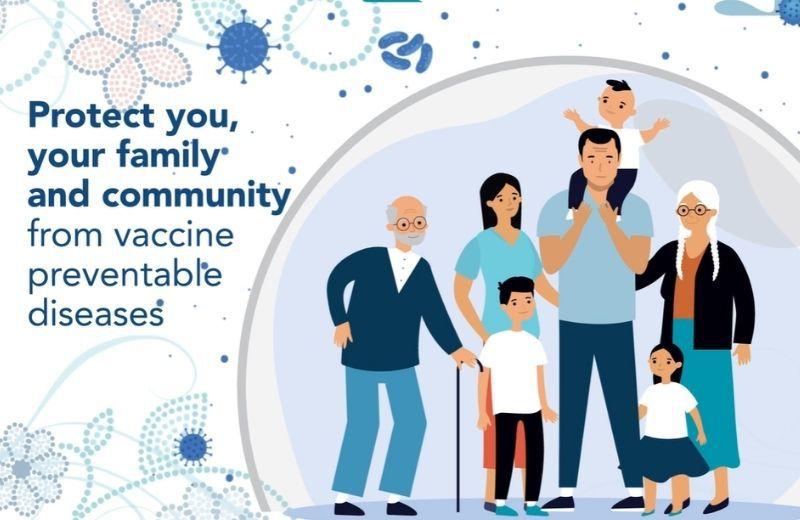A new video from the National Collaborating Centres for Indigenous Health and Infectious Diseases is intended to promote vaccine confidence for First Nations, Inuit, and Métis peoples.
Vaccines, also called immunizations, work to protect you, your family, and your community from preventable diseases like measles, chickenpox, and polio.
Immunizations are safe and have completely or partly eradicated many formerly common illnesses. The more you know about immunizations and how safe they are, the more confident you can be in your decision to get vaccinated.
Four vaccine facts to remember
- Vaccines reduce your risk of getting certain infectious diseases and reduce the spread of those infectious diseases to other people.
- Vaccines are safe and carefully tested.
- Side effects from vaccines are rare.
- Vaccines help your body fight disease.
Making the choice to get vaccinated is the responsible thing to do, both for yourself and for your loved ones. Your vaccination also helps keep your community safe from vaccine-preventable diseases.
Resources
- National Collaborating Centre for Indigenous Health (NCCIH) fact sheet: Vaccine preventable diseases in Canada: What are they?
- NCCIH fact sheet: Vaccines – the facts
- NCCIH report: There is no vaccine for stigma: A rapid evidence review of stigma mitigation strategies during past outbreaks among Indigenous populations living in rural, remote and northern regions of Canada and what can be learned for COVID-19
- NCCIH webinar: Vaccine hesitancy and First Nations, Inuit, and Métis populations














Comments